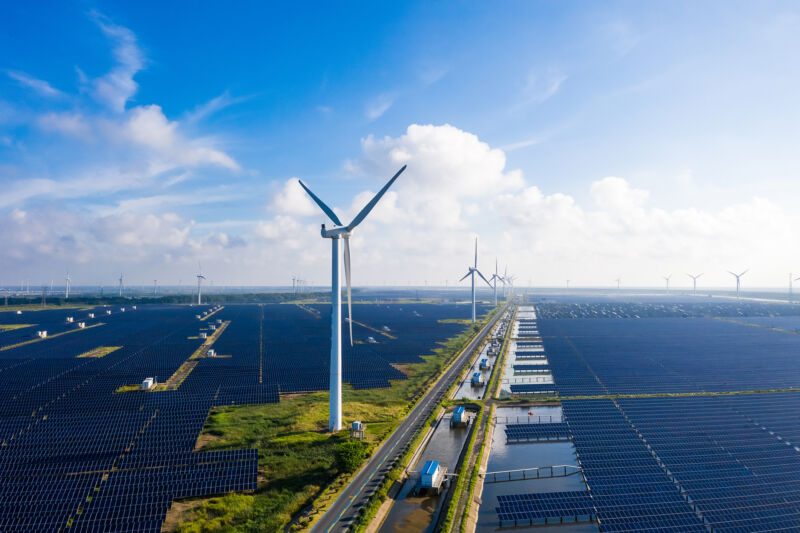
Enlarge / All that’s missing are some batteries. (credit: Jia Yu / Getty Images)
The incredible plunge in the price of photovoltaic systems has made solar power an affordable option for much of the world. And, as long as solar is providing a small fraction of the power on a given grid, there’s little holding back the addition of new photovoltaic facilities. But as the fraction of solar power grows, managing the fact that it only generates electricity intermittently becomes a significant grid-management challenge.
At that point, factors other than price become significant in determining how much solar energy makes sense. And those factors can vary from country to country. This means that understanding solar’s potential requires a country-specific analysis. This week, researchers in China released an analysis of their country, indicating that solar has now reached a point where it’s cost-competitive with coal. The report also states that solar (when coupled with storage) could handle nearly half of China’s needs by midcentury.
A changing landscape
Like everywhere else, China has seen the cost of solar power dive over the last decade, with a 63 percent drop between 2011 and 2018 alone. In line with that, the installation of solar has risen dramatically. Currently, a third of the entire planet’s new solar capacity is being commissioned in China; the country passed the installed capacity of the US in 2013 and Germany in 2015, and it now has over 250 GW active—well more than double what its economic plan had specified by this point.
